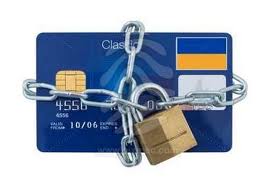| Resources | Blog |
Articles |
Booking Demo |
Forum |
Help Pages |
How-To Videos |
Releases |
||||||||||||||||
| Resources: Blog |  |
|

Most vacation rental (VR) businesses require some kind of payment when a booking is made, and then the remainder is usually paid some time later - typically 14 to 60 days prior to the check-in date. Some VRs have multiple subsequent payments, often including a refundable security deposit along with the remaining balance due for the booking.
There is a temptation for VR managers to record the credit/debit card number, expiration date, etc. of the card used to make the initial payment, and then use this to automatically charge the guest for the subsequent payment(s).
But this is a bad idea. Here's why.
1) The card may be expired. Often the final balance (or other subsequent payments) are due months - perhaps even more than a year - after the initial payment has been made. If so, there's a pretty good chance the card is expired.
2) The card may be lost or reported stolen. Anything can happen, and the longer the time between the initial payment and any subsequent payments, the greater the odds are that the card may be out of commission.
3) The card may be maxed out at the moment. Or maybe it will be when you go to "cha-ching" it for the balance due, which for most VR's these days will typically be at least a few hundred dollars, and often exceeds a few thousand. If the guest was planning to use that card to pay other, routine bills, then your auto-charge could easily take the card near (or beyond) its maximum, rendering the customer unable to pay other bills. Worse, if it's a debit card, you're taking money directly out of a checking account, and then the poor customer might be bouncing checks or other scheduled payments, possibly even including their mortgage. Ouch!
4) Recording credit/debit card numbers, their expiration dates, or their "security codes" (CVV numbers) often found on the back, is considered taboo in the credit card and banking industry, and is probably a violation of the terms of your merchant account. Storing card data is only permitted for businesses that are PCI/DSS compliant - a stringent and not inexpensive certification process that must be performed annually. Getting caught recording this information while not in PCI/DSS compliance can get your account fined, suspended, or even permanently revoked.
So What's The Alternative?
A far better approach is to bill your customer for any subsequent payments. This is best done with simple emails, which remind the guest what this is about, review any previous payments made, and clearly explain what is due next and when. The email should have an obvious link or button in it that they can click that will take them to a secure payment page to remit directly to your account. Bookerville provides Email Templates that can even be setup to be sent automatically based on your own custom payment schedule. You can also setup additional Past Due email reminders that will go out automatically if the guest has not paid after the due date.
Invoicing the customer in advance of payments due not only avoids all of the above-mentioned troubles, it's also just plain courteous. It gives the guest a few days to get funds together, move money to a different account, etc. in order to pay you on-time and with their preferred card or method.
Reply »
Recent Posts:
Monthly Archives:
Categories:
- Minimum Days Between Bookings
- Property Deletes No Longer Permitted
- Bookerville's New Maintenance App
- Automated Refunds Are Here!
- Send Your Scheduled Emails Hourly
- "From" Address and Bookerville Email Delivery
- Automatic Emails and Listing Sites
- Vacation Rental Channel Managers
- At-A-Glance Tab Updates
- Bookerville Reads Your VRBO iCal Feed
- Guest Services Mobile App!
Monthly Archives:
- February 2021 (1)
- May 2020 (1)
- January 2020 (2)
- December 2019 (1)
- August 2019 (1)
- November 2018 (1)
- February 2017 (1)
- November 2016 (1)
- May 2016 (1)
- April 2016 (1)
- January 2016 (1)
- August 2015 (1)
Categories:










